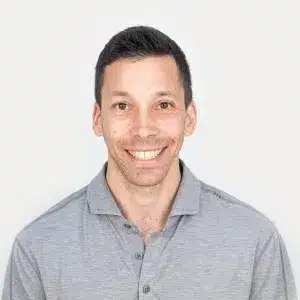Today’s post features Ayesha Ilyas, Front-End graduate who used her Nanodegree experience to land a job as a front-end developer. We asked Ayesha a few questions about her journey, and discovered she has a very passionate stance on women in development, which is certainly worth a read on its own.

I have a bachelor’s degree in computer science. I graduated back in 2004, so I have some knowledge of computer science, data structures, databases, and object-oriented programming. But it was such a long time ago and I never had a technical job. I worked for a bank for a couple years, then for the last five or six years, I’ve been off work spending time with my family.
With the Nanodegree, I was completing projects I could showcase.
Did you know right away that front-end development was the right path for you?
At first, I wasn’t really sure what specific path to take. I took a course in data science and I wasn’t really comfortable with that, so when the Front-End Nanodegree started, I took it up. Most of the web development content in the Nanodegree was new to me: HTML and CSS, for example. It was a clean slate. I was actually debating if I should enroll in a master’s program, as I wanted to get back into the CS field. I wanted to get a job, but of course I didn’t have any experience. I graduated so long ago, and even though I had taken courses on Udacity and Coursera, I knew that nobody was going to hire me just like that.
How would you describe the experience of taking the Nanodegree?
With the Nanodegree, I was completing projects I could showcase. I really do think that it has been a life-changing experience for me because it saved me from spending time and money on a master’s degree and piling up a ton of student debt. I’m glad I have a job. I can get some development work experience, continue studying, and go on from here.
The career counseling portion provided a LinkedIn seminar that was also very helpful. I tweaked my profile after that session and I was able to get my resume and my LinkedIn profile in a very good place. Highlighting the projects was a big plus.
What’s amazing is how few women are developers. I think this is the perfect career — as a former stay-at-home mom, I feel like after a few years of experience, I can work this into something I can manage from home.
What was the process of applying for jobs like after the Nanodegree?
I’m based in Orange County, and I joined a meetup that one of my colleagues was also a part of. She posted a job rec in the group and I eventually followed up with her. Frankly, I was just trying to land a few interviews so that I could practice the process and get comfortable…I hadn’t done it in such a long time. That was my motivation for applying, but to my surprise I heard back from her and she wanted to meet me. Eventually, I got the job.
When I started, I had my own set of responsibilities and now I’m getting more comfortable in the tasks that have been assigned to me. The learning curve was initially very steep — for example, I had no idea how to SSH to a server. Even though I was hired as a front-end developer, I’m doing some back-end stuff because it comes as a package. So I’m making database queries and doing some server maintenance.
Did Udacity help prepare for a job in other ways?
Obviously in every job, there’s a learning curve. Udacity took me this far, but I really had to show some initiative and ask for help on the job.
In relation to my work, the Nanodegree has been very helpful with the content I learned. But when I was taking the courses and studying, I had to do a lot of learning on my own. I think that’s something many people found challenging, because it’s easy to give up when you hit something difficult.
In my experience, employers really do look for projects and portfolios.
That is one thing that I felt could have been better in the Nanodegree. Putting out messaging to students that it’s not always going to be enough to simply do this courses and do the projects. You have to study on your own and find resources.
How did you find the pacing of courses and projects?
The pacing of the Nanodegree was just right. It gave me enough room to work really hard on a project if I wanted to exceed expectations, without feeling rushed to meet the deadline. In my experience, employers really do look for projects and portfolios.
What’s amazing is how few women are developers. I don’t understand why there aren’t a lot of women in this field. I think this is the perfect career — as a former stay-at-home mom, I feel like after a few years of experience, I can work this into something I can manage from home. Honestly, it’s such a great field for women to come into.
Are you passionate about the dominance of men in development?
I worked for a bank, which had a bigger female workforce. So coming back to work and feeling so passionate about programming, it struck me that more women weren’t in this sector. I think that employers should really tap into the female market and try to involve more and more women.
For example, Udacity could focus on why women should be a big part of this Nanodegree. I see so many less women, even from my own Nanodegree cohort. I just wish I could do something about the problem. Hopefully I can somehow make an impact. I think more and more mothers should be a part of this industry. I’m really passionate about that.
Overall, this experience has been amazing. I’m just amazed with so little monetary input, I was able to secure a job and work on improving my career, all thanks to Udacity.
Want to share your Udacity story? We want to hear from you! Drop us a line at social@udacity.com.






